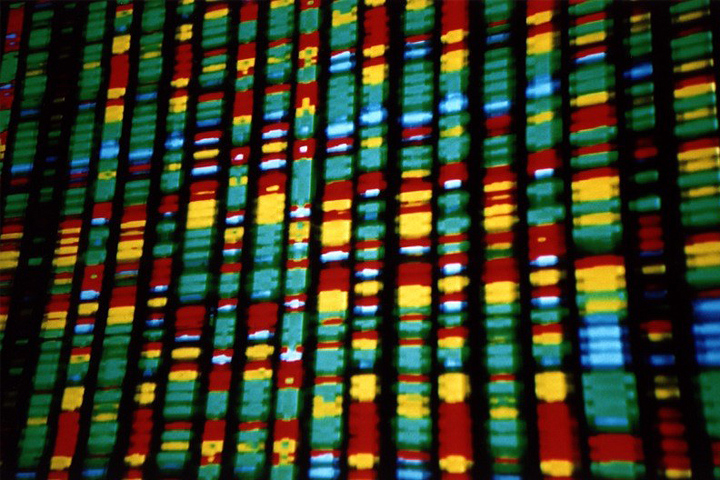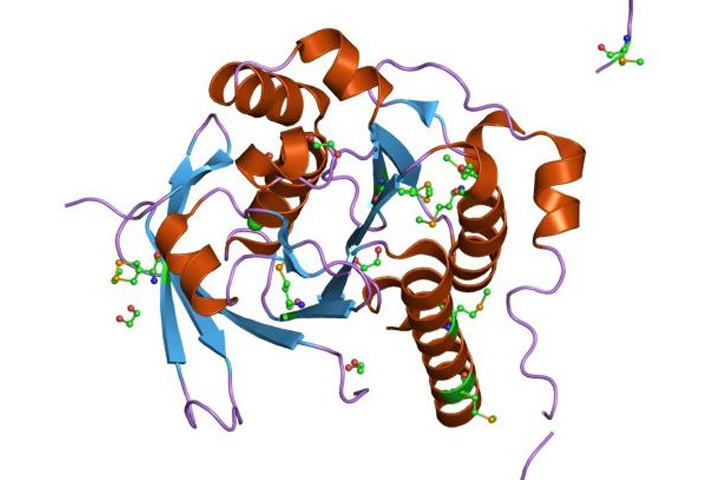Genetic Mutations and Family History
How do genetic mutations impact treatment? Learn why genetic testing is important for treatment and what the latest research is finding about treatments.
50 Articles

Dousing Out-of-Control KRAS Signaling in Pancreatic Cancer
Rene Bernards and his team are targeting the signaling pathway of the KRAS mutation, which occurs in almost all pancreatic cancers.

GENERATE Study Aims to Improve Genetic Testing and Prevention for Pancreatic Cancer
Dr. Sapna Syngal outlines the GENERATE study, which aims to help families with a risk for pancreatic cancer by providing genetic testing.

Damage as a Way to Repair Pancreatic Cancer
Dr. Talia Golan takes a closer look at the damage caused by the BRCA1/2 mutations to find a way to treat pancreatic cancer.

Genetic Testing for All Pancreatic Cancer Patients
A study by Dr. Gloria Petersen’s research team has led to an official recommendation that all pancreatic cancer patients get genetic testing.

New NCCN Guidelines Stress Genetic Testing For All Pancreatic Cancer Patients
Genetics impact your treatment for pancreatic cancer. Dr. Sapna Syngal discusses the recommendation of genetic testing for all pancreatic cancer patients.

PARP Inhibitors for Pancreatic Cancer Maintenance Treatment
Dr. Kim Reiss Binder is leading a clinical trial of maintenance treatment with the PARP inhibitor rucaparib, for patients who carry the BRCA mutation.

A Potential Role for PARP Inhibitors in Pancreatic Cancer
Dr. Michael Pishvaian leads research into the possible role of PARP inhibitors in treating pancreatic cancer patients with certain genetic mutations.

Genetic Testing Can Help Those You Love
Dr. Fay Kastrinos, director of the Muzzi Mirza Pancreatic Cancer Prevention and Genetics Program at Columbia University Medical Center, explains the value of genetic testing for cancer prevention and treatment.

The ABCs of Genetic Testing
There are a number of different genetic mutations that can cause familial pancreatic cancer. This article explains some of the most common ones.

Tumor Genetics Research Brings Some Answers for Families at High Risk
Professor Gloria Peterson of the Mayo Clinic is working on tumor genetics to help make early detection of pancreatic cancer a reality.

A Registry for Those at Risk for Pancreatic Cancer
Dr. Robert Kurtz founded the Pancreatic Tumor Registry at Memorial Sloan Kettering to learn more about the genetic mutations that cause pancreatic cancer.

New Drug for BRCA Carriers with Advanced Cancer
A phase I clinical trial is testing the effectiveness of a platinum-based drug for BRCA carriers with pancreatic, breast, and other cancers.

Most Cancer Mutations Are Random DNA Mistakes
In a large study, Dr. Bert Vogelstein of Johns Hopkins found that a majority of cancers, including pancreatic cancer, are caused by random mutations of DNA.

A Maintenance Trial for Patients with BRCA or PALB2 Mutations
A clinical trial examines whether the PARP inhibitor rucaparib can work as a maintenance drug for pancreatic cancer patients with BRCA or PALB2 mutations.
